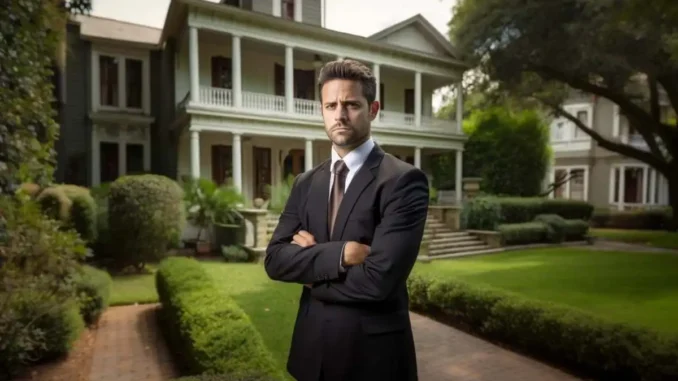
As copycat commission lawsuits spread across the country in the wake of the Sitzer/Burnett jury verdict, a new demographic of plaintiffs’ attorneys are getting in on the action: so-called “ambulance chasers.”
While the plaintiffs in the Moehrl, Sitzer/Burnett and Nosalek lawsuits are all represented by large law firms with class-action experience, the plaintiff in the relatively small Burton suit in South Carolina is represented by attorneys at Knie & Shealy Law Offices in Spartanburg. The firm’s website advertises that it specializes in personal injury lawsuits.
“It’s not good,” Mike Ruggio, a partner at Taylor English Duma LLP and an antitrust law professor at Pittsburgh Law School, said.
“Whenever you see personal injury lawyers coming, it’s not a good sign. I hate to say it, but they can be kind of mercenary in how they go about things, and they look for the best percentages they can.”
Due to this, Marx Sterbcow, the managing partner at Sterbcow Law Group, fears the real estate industry may be in for a “death by a thousand cuts.”
“I could see this being brought out among states and having attorneys trying to basically create their own territory within one state to try and avoid multi-jurisdiction litigation or class actions,” Sterbcow said.
Although the number of copycat commission lawsuits has proliferated in the two weeks since the jury verdict in the Sitzer/Burnett suit was announced, these lawsuits potentially run the risk of being consolidated into a multi-jurisdiction litigation suit, as there are federal rules in place to prevent the wildfire-like spread of copycat lawsuits.
According to these rules, the first lawsuit filed will most likely survive while everything filed after may be dismissed, transferred or consolidated in with the initial lawsuit. However, if the issues raised, plaintiffs or defendants differ enough in these later lawsuits, they have a higher chance of survival.
This explains why Michael Ketchmark, the lead attorney for the plaintiffs in the Sitzer/Burnett suit, chose to sue a whole different group of corporate brokerages in the Gibson lawsuit he filed just hours after the Sitzer/Burnett verdict was announced. This also provides a window of opportunity for personal injury lawyers.
“Those guys aren’t going after big dogs with big war chests and defense firms on retainer. They want smaller targets who are far easier to greenmail,” industry analyst Rob Hahn wrote in the Nov. 12 edition of his NotoriousROB email newsletter in reference to personal injury lawyers.
“Once the local personal injury guys really get involved, we’ll see hundreds, maybe thousands of cases filed across the entirety of the industry. Not because any of those lawyers give a goddamn about the consumer, but because they want an easy payday. Ten thousand fists in the air indeed.”
The industry has already had a preview of this with the Burton suit in South Carolina, which only names the National Association of Realtors and Keller Williams as defendants, unlike some of the other copycat lawsuits, such as the Batton 2 suit, which names seven defendants, or the March lawsuit and its 27 Manhattan brokerage defendants.
The recently filed QJ Team lawsuit in Texas also seems to be adopting a similar strategy despite the plaintiffs employing two major class-action law firms, Lynn Pinker Hurst & Schwegmann and Kaplan Fox & Kilscheimer.
Although the suit names major corporate brokerages like Keller Williams and HomeServices of America, it also names real estate teams, such as The Loken Group and Hexagon Group, as well as an individual broker, Mark Anthony Dimas, suggesting that the plaintiffs’ attorneys are looking to localize the lawsuit in order to prevent consolidation with other suits with the same claims. Several local Realtor Associations were also named, which is different than the earlier suits.
As more and more copycat lawsuits pop up, brokers are increasingly concerned their firm may be next.
“I think it is just a matter of time until the copycat lawsuits are in every state going after every brokerage,” Lisa Chinatti, the broker-owner of Chinatti Realty, said. “I think the question mark is whether it retains itself to just the brokerage level or whether it trickles down to the team or even agent level.”
In addition, as the lawsuits continue to pile up, the likelihood that brokerage firms decide to settle also increases.
“Getting enough lawyers to defend this, it is just cost-prohibitive to go at this alone,” Sterbcow said. “This is a big boy’s game and everybody else is caught up with the tsunami of water coming in on the shore.”
Despite an increased likelihood of settlements, Sterbcow believes it’s just a matter of time before class-action real estate commercials start popping up on television and radio.
“You’re going to start seeing a lot more advertising for consumers across the country to either join a lawsuit or to be part of a class, and it will almost become like a BP oil spill-type arrangement, to some degree, given the large dollar amounts that are involved,” Sterbcow said.
“It will be: ‘Have you or a loved one closed on a house in the last five years and used a real estate agent? If so, please give us a call as you may be entitled to damages.’”

